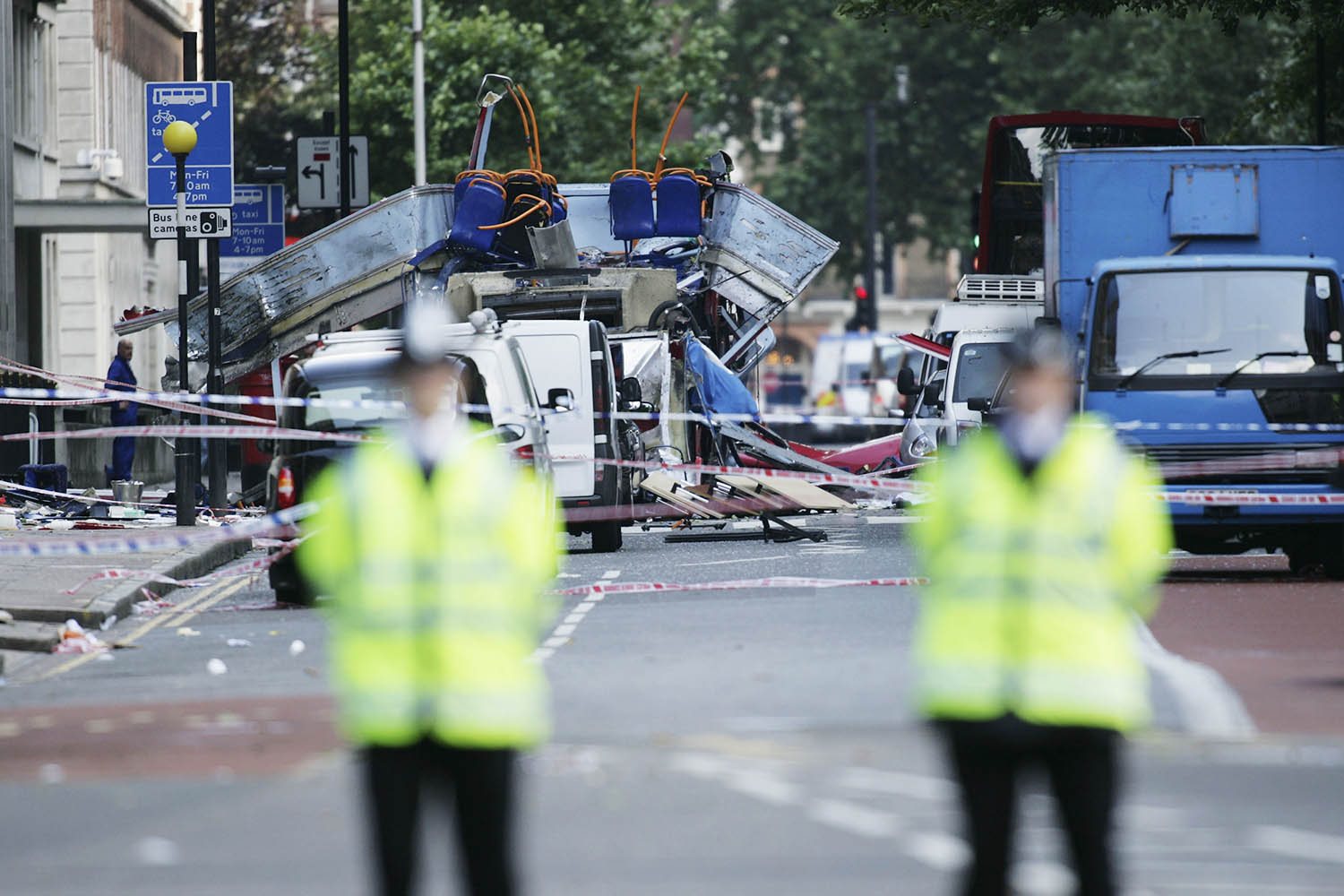Like so many others, I remember what I was doing on 7 July 2005. Although in 2018 I would become the counter-extremism commissioner, back then I was working as an NHS hospital pharmacist on a ward in Hertfordshire. Along with all the medical staff and patients, I was glued to the television as we watched the horror unfold. As a patriotic, hijab-wearing Muslim woman in my early 20s, I felt sickened and angry, heartbroken and fearful. That day profoundly changed our country. It fuelled further extremism, created fear and division, destroyed families, eroded community cohesion and maligned an entire religious group.
It changed my own life; it was the day I decided to dedicate my life to countering extremism, and I have spent the last 20 years in this endeavour.
The terrible discovery that four British “homegrown” Islamist terrorists carried out a series of co-ordinated suicide-bombings in London in 2005 resulting in the murder of 52 people and injuring 784 forced us as a country to answer difficult questions. What led these men – one of them was a teenager – to carry out such a heinous attack? How and why were they radicalised? What more could and should the state do to identify those vulnerable to radicalisation and to prevent them from travelling down such a deadly violent path? How do we build societal and community resilience against extremism?
Twenty years on, those questions are even more urgent. Today, we find ourselves living through an evolving and accelerating landscape of extremism that successive governments have failed to respond to adequately. MI5 has seen a threefold increase in children under the age of 18 being investigated for terrorism in the last three years alone.
Declining social cohesion and democratic resilience is contributing to a permissive environment in which extremism is flourishing
Declining social cohesion and democratic resilience is contributing to a permissive environment in which extremism is flourishing
Persistent Islamist extremism, rising extreme rightwing and violent incel ideology, and pick’n’mix extremism where individuals create their own “brand” of extremism, alongside a growing public appetite for conspiracies, the dangerous impact of disinformation and a mainstreaming of extremist narratives in society demonstrates the complex and challenging picture we are now having to confront.
Extremism does not occur in isolation. It takes root in conducive social, political, economic, cultural and technological environments. Which is why no examination of extremism can occur without also examining the state of societal and democratic resilience. A report I wrote in December evidenced how declining social cohesion and democratic resilience is contributing to a permissive environment in which extremism is flourishing and being strategically exacerbated and exploited by foreign hostile states and domestic extremists.

Far-right activists stage a protest in Sunderland after the murders of three girls in Southport last year
MI5’s Ken McCallum, in his most recent annual speech, talked about his agency’s operational focus sitting “within a much wider context” both online and offline: the insidious effect of internet hatred and disinformation, intimidation of communities and the summer riots, rising public order, hate crime, online extremism, conspiracy theories and disinformation. All of which contributed to what he described as “slower-burn radicalisation … this tide is hard to quantify or to forecast”.
But it is this tide, these trends that we must get much better at predicting, quantifying, preventing and responding to. I disagree with Ken. I don’t believe it is hard to quantify or forecast. The failure is that the UK government has not devised a comprehensive framework or strategic approach.
I demonstrated this in my official government review last year. Neither the National Risk Register, the Government Resilience Framework, the Home Office or the communities department adequately address the accelerating extremism landscape and threats to social cohesion and democratic resilience. Neither does the recently published National Security Strategy grapple with these issues. It is widely assumed that Prevent is designed to tackle extremism that falls just below the terrorism threshold. This is a widely held misunderstanding of its remit.
During my time as counter-extremism commissioner, I evidenced the many gaps in our country’s counter-extremism approach: gaps in legislation, the lack of operational powers for police, how the Online Safety Act would fail to address the eye-watering scale of extremist content online as well as the lack of a counter-extremism strategy. This was allowing extremists – whether Islamists, neo-Nazis, neo-fascists and others – to operate with impunity. And just as we saw signs of an accelerated extremism landscape, the government scrapped the then counter-extremism strategy in 2021, a decision that was not adequately debated by parliament.
Newsletters
Choose the newsletters you want to receive
View more
For information about how The Observer protects your data, read our Privacy Policy
Nothing has replaced it since. Last year, after the summer riots and as promised in Labour’s manifesto, the home secretary commissioned an internal review of counter-extremism by Home Office officials. So badly executed was the review – and after its leak in February – the home secretary was forced to disown it. Little progress has been made since.
The Home Office’s review also demonstrated the consistent inability to answer one of the most fundamental questions since 7/7: how do liberal democracies counter extremism without curtailing civil liberties and freedom of expression? It was the one question that plagued my time as commissioner and I showed how this circle could be squared in my official reports. The Home Office to date has chosen to ignore those reports and recommendations, arguably to our country’s detriment.
As we reflect on the horror of 7/7 and remember the victims, I hope the government recommits to this long-suffering policy area. The UK is behind the curve and we lack the preparedness, strategy and resilience needed to withstand the rapidly changing extremism landscape.
Dame Sara Khan DBE was counter-extremism commissioner from 2018 to 2021
Photographs by Stephen Munday/Getty, Simone J Rudolphi/Drik via Getty


